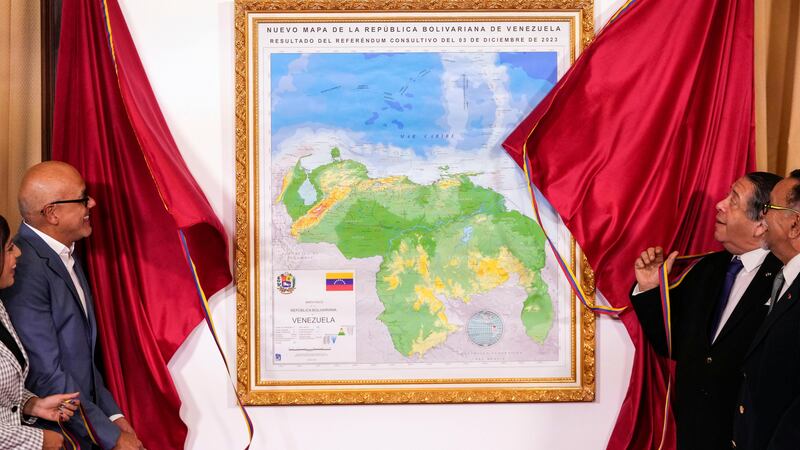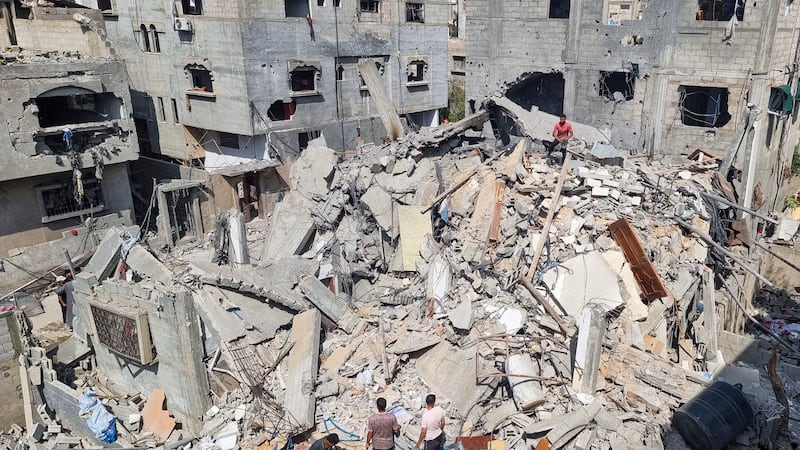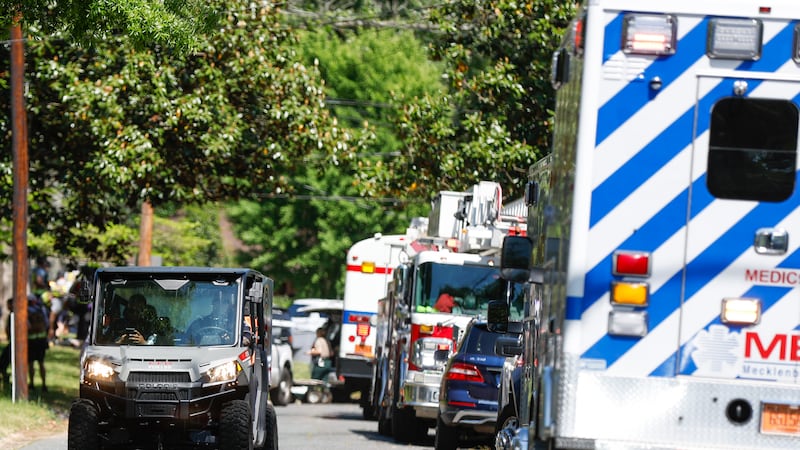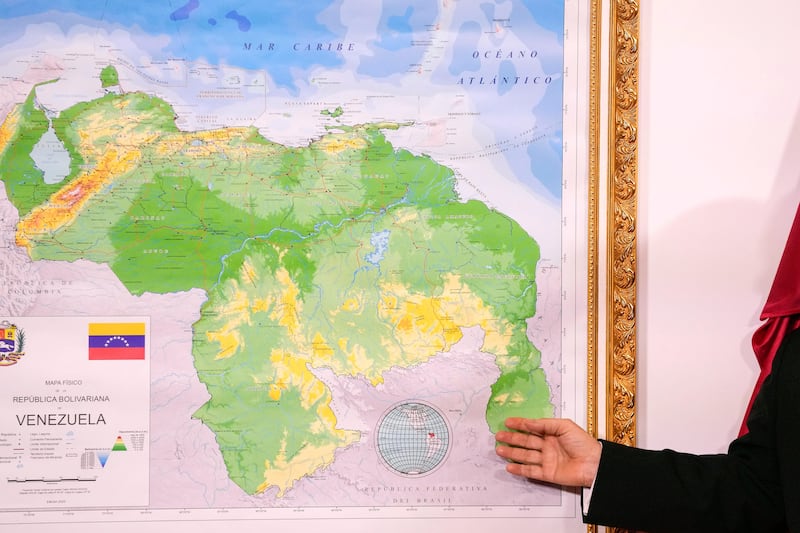Vice president Bharrat Jagdeo has warned Guyana will protect its sovereignty after neighbouring Venezuela claimed sovereignty in a referendum over an oil and mineral-rich part of the country.
President Nicolas Maduro’s government argues the territory of Essequibo was stolen when the border was drawn more than a century ago.
“Any attempts by his state oil firms or state corporations to explore for petroleum in our area will be viewed as an intrusion by Guyana,” said Mr Jagdeo.
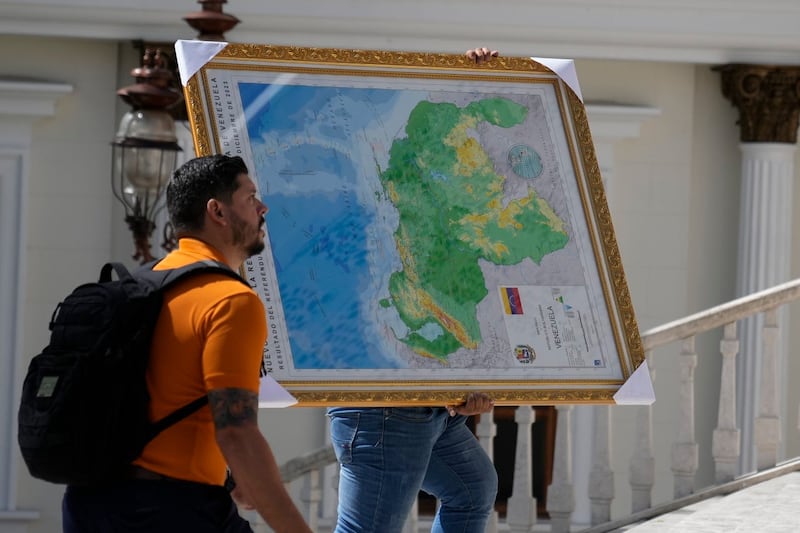
“If (Mr Maduro) believes that belligerence and threatening Guyana will lead to the desired bilateral conversations, he is profoundly incorrect.”
The UN Security Council held an emergency, private meeting on Friday as world leaders and international organisations backed Guyana. Members of a regional trade bloc known as Caricom also called a closed-door meeting to talk about the dispute.
Venezuela says it was the victim of a land theft conspiracy in 1899, when Guyana was a British colony and arbitrators from Britain, Russia and the United States decided the boundary.
They argue a 1966 agreement among Venezuela, Britain and the colony of British Guiana effectively nullified the original arbitration.
Guyana maintains the initial accord is binding and asked the United Nations’ top court to rule it as such in 2018, but a decision is years away.
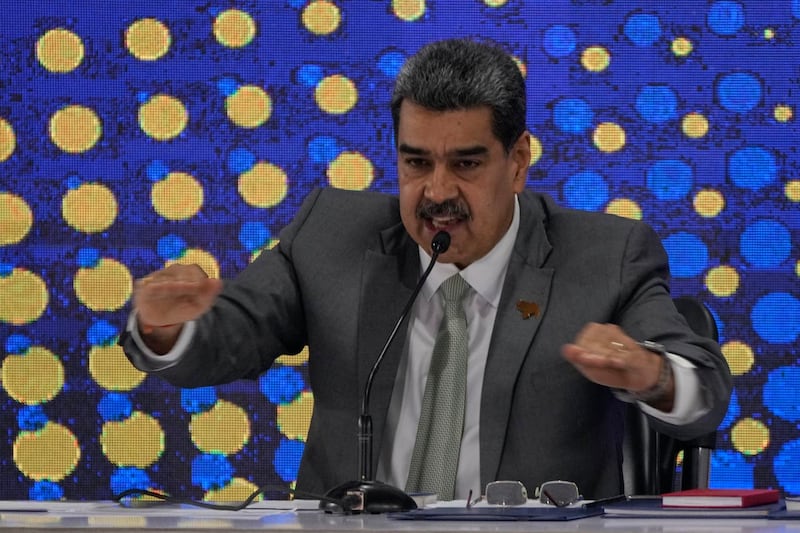
The dispute has been heightened since 2015 when oil deposits were discovered off the coast of Essequibo – the first oil pumped ashore in December 2019 turning Guyana into the world’s fourth-largest offshore oil producer.
Operations generate one billion US dollars (£800 million) a year, increasing the country’s economy by nearly 60% in the first half of this year.
In September, six companies and groups submitted bids for 14 additional offshore blocks for exploration and development.
Despite having the world’s largest proven crude reserves, Venezuela’s oil industry has been crippled by years of mismanagement and economic sanctions imposed on the state-owned oil company following Mr Maduro’s re-election in 2018.
The country’s National Assembly has discussed banning companies from operating in Venezuela if they do business in Guyana.
The Organisation of American States said the 1899 boundary is “in force and legally binding on all parties under international law”.
It also accused Mr Maduro’s government of taking an “aggressive stance” and of “continuing to take and promote unlawful actions against Guyana”.
The organisation said it was profoundly worried about the situation, “which has escalated to a point of significant concern for regional security and constitutes a matter that threatens the stability and territorial sovereignty within our hemisphere”.
